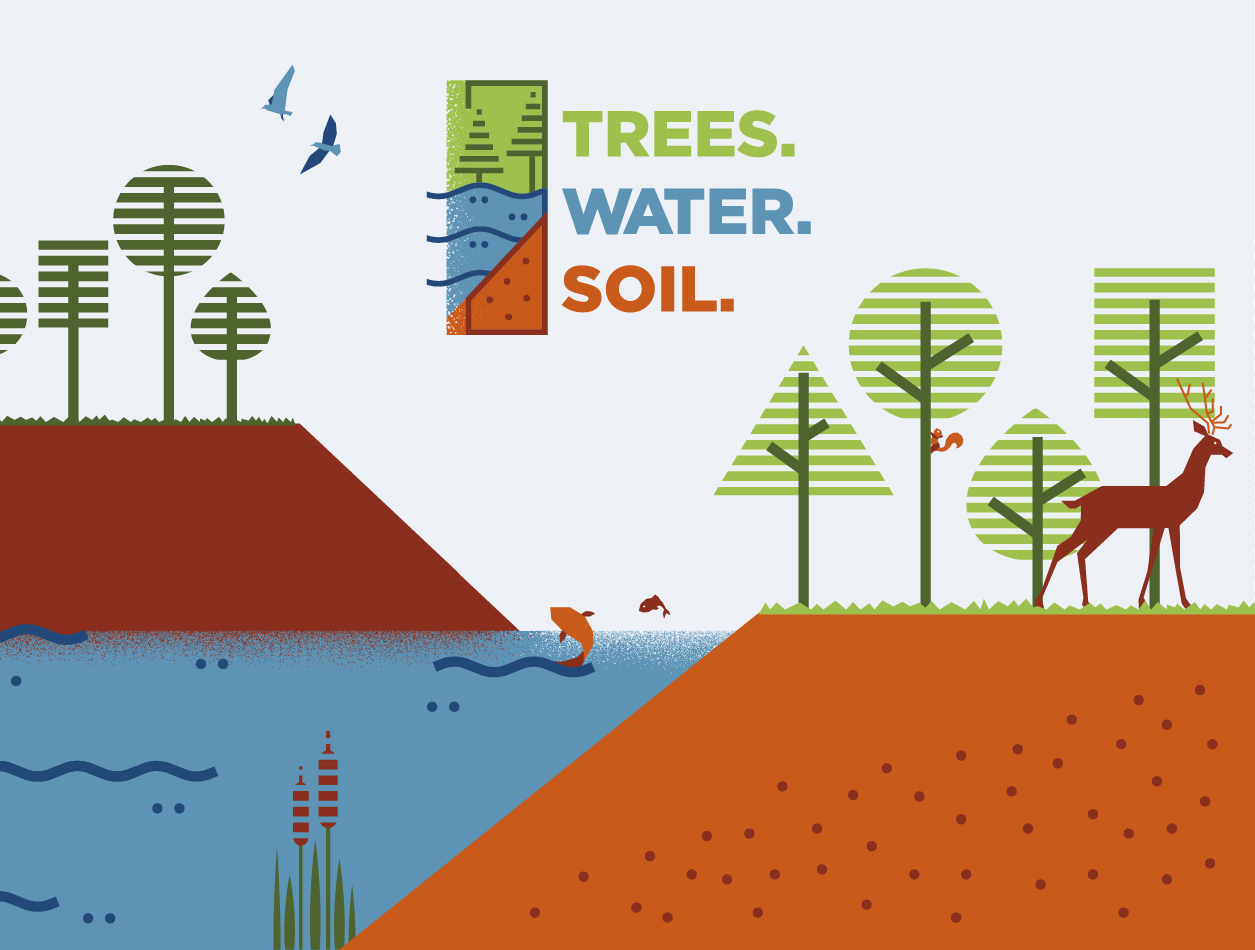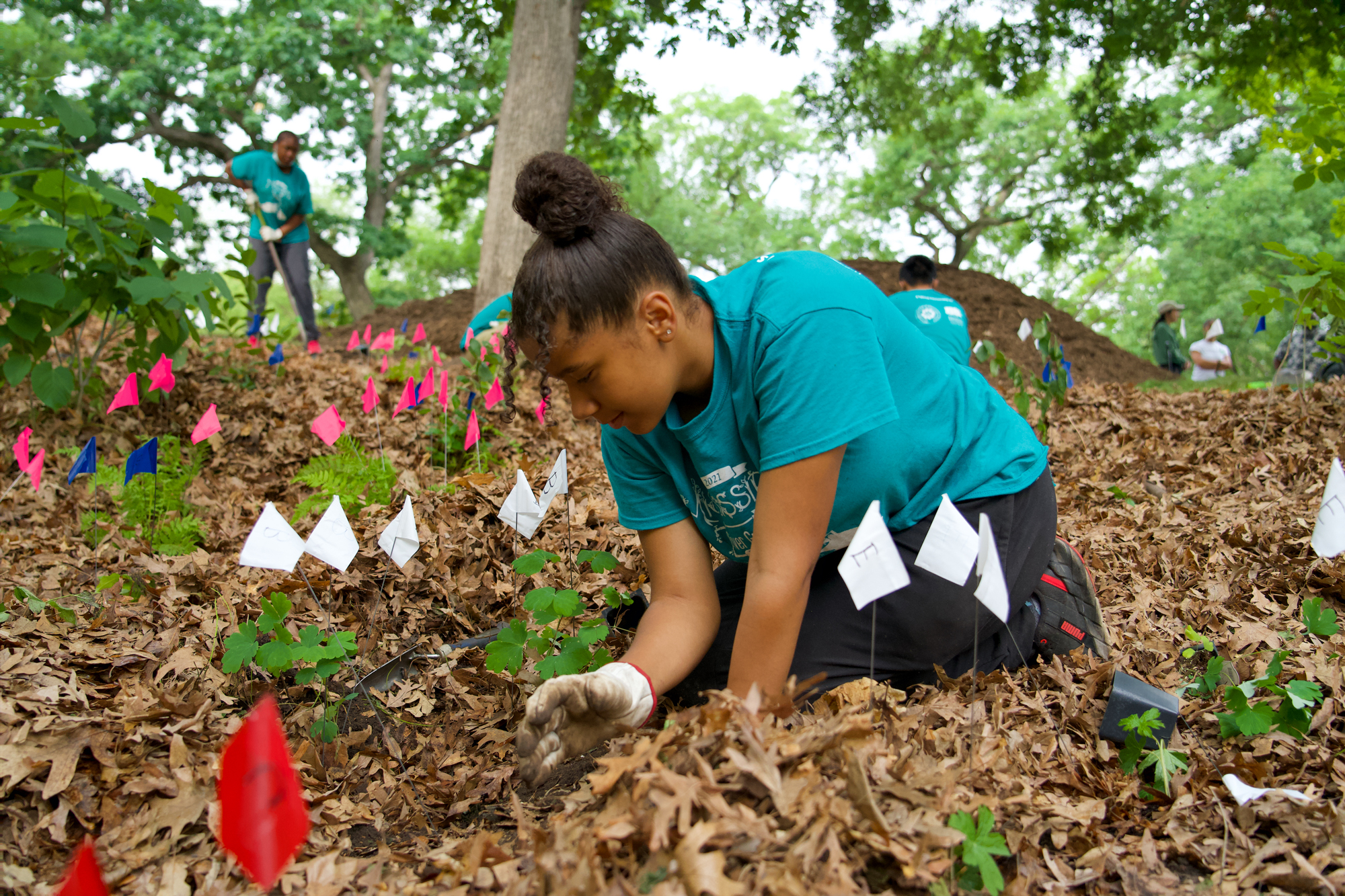Growing Solutions: Highland Family Farms
Kristin Duncanson practices what she preaches—employing soil health practices on her family's farm and helping other producers do the same.
Kristin and Pat Duncanson own and manage Highland Family Farms along with two of their four children, Gabe and Ben. Named for its location in a Scottish settlement in Mapleton, Minnesota, the operation is larger than average and produces corn, soybeans, pork and cereal rye for a local distillery. The Duncansons also find joy in making maple syrup and selling pumpkins and squash.

In addition to working on the farm, Kristin is a consultant who helps farms build and implement sustainability plans. She practices what she preaches and actively pursues sustainable solutions on her family’s farm. Kristin says their “sustainability plan includes three pillars: profitability, environment and community.” The Duncansons are in the process of transitioning a portion of their farmland to organic crops. Furthermore, in order to reduce transport time to their customers and reduce their carbon footprint, the family markets its commodities in locations that are close to their farm whenever possible.
To reduce their environmental impact, Highland is working to incorporate cover crops and advance no-till and low-till practices. No-till farming involves growing crops without plowing or otherwise disturbing the soil. Low-till farming typically involves the use of a specialized or modified equipment that minimizes soil disruption. Both practices support the family’s overall goal to improve soil quality. In addition to those practices, Highland plants cover crops that aren’t planted for harvest and are intended to reduce soil erosion.
No- and low-till practices and planting cover crops carry important environmental benefits and are proven to improve soil health while maintaining high productivity. But the practices are challenging at Highland because they make it more difficult to incorporate manure as a fertilizer. Manure is a critical part of how Highland meets its soil nutrient needs. “We want to make sure manure is applied to the ground and is strategically placed so just enough nutrients meet the needs of the plants,'' Duncanson said.
Cover crops are planted to protect the land from erosion rather than being planted for harvest. Duncanson points out that “one barrier to wider acceptance of cover crops and no-till planting is the insurance industry,” which, she says, “is just starting to consider how to recognize crop insurance to farmers who are using cover crops.”


Ten years ago, the Duncansons weren’t sure cover crops worked and were concerned that they might be more expensive than more prevalent methods. Because grains and soybeans have different growing seasons, it is more effective to plant cereal grains in the summer. Highland works with soil management teams at the University of Minnesota and an independent crop consultant to monitor their soil health. The monitoring has shown that planting cover crops has increased the amount of nutrients held in the soil and increases organic matter on their farm. The soil is better able to hold water when it needs to and drain when it doesn’t.
Precision agriculture is another approach that promotes sustainability. Highland works with soil agronomists to make sure they’re placing the right application of soil amendments or herbicides in the proper areas, taking care to use only what they need. During the summer, the Duncansons assess weeds on their farm, then decide how to handle them based on productivity and profitability considerations. Weed control requires them to consider herbicide use, cultivation and tillage practices.
Another part of Highland Family Farm’s sustainability program is participating in the Minnesota Agricultural Water Quality Certification Program. Farmers who want to implement conservation practices that protect water systems are encouraged to apply. For farmers who apply, state certifiers check their water intake, filtering practices and erosion management. A certification lasts for 10 years and can help secure technical and financial assistance for conservation practices that protect water quality.
Water from the Highland farm’s land flows into public and private ditches that empty into the Le Sueur River and ultimately into the Minnesota and Mississippi Rivers. Highland was able to obtain certification of their water quality through the use of cover crops, sustainable tillage practices, and nutrient management that resulted in notable improvements over the past three years. Their certification was also granted on the basis of their use of integrated pest management, which uses a combination of environmentally sensitive practices to control insect pests, and wildlife management. In addition to supporting cleaner water, participants in the state’s certification program receive data to advance their farm operations and improve their eligibility for federal cost-sharing programs.
Want More Stories?
Get new stories and timely action alerts so you can speak for our trees, water and soil.
Sign up
The data also support potential new markets for farmers, such as the carbon market. Farmers who adopt agricultural practices that sequester carbon into the soil, crop roots, wood and leaves can potentially sell carbon credits on the market. Healthy soil can contain 5% carbon by weight, including decomposing plant and animal matter. Data from the farm can help quantify that carbon sequestration is occurring and to what extent, allowing them to quantify the amount of carbon sequestered and access markets for the sale of carbon credits.
Duncanson explains that the family’s goal “is to get the data ready so, long-term, if there’s an opportunity to put a value on our carbon sequestration, or the other ways we’re reducing greenhouse gas emissions, we’re ready.”





